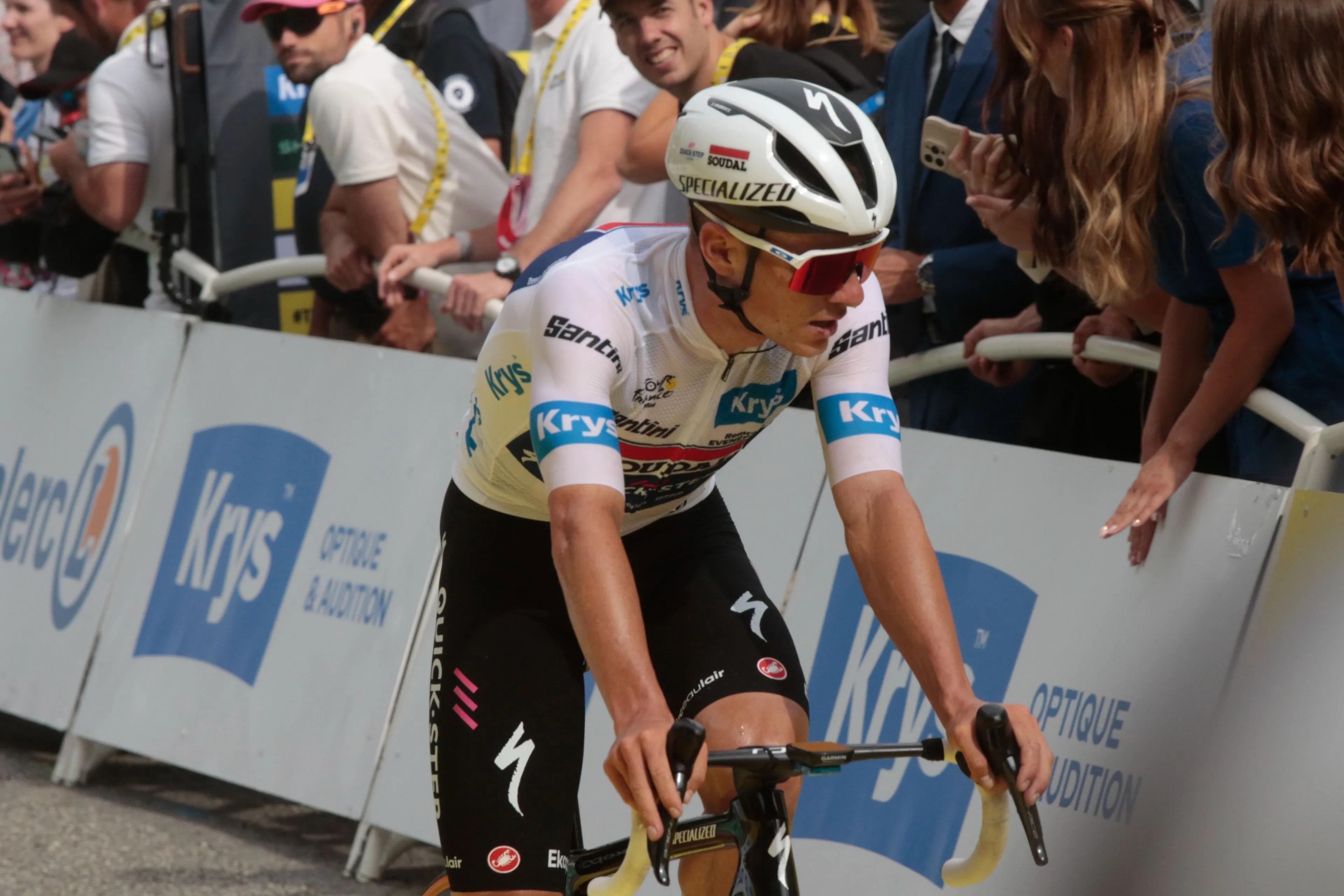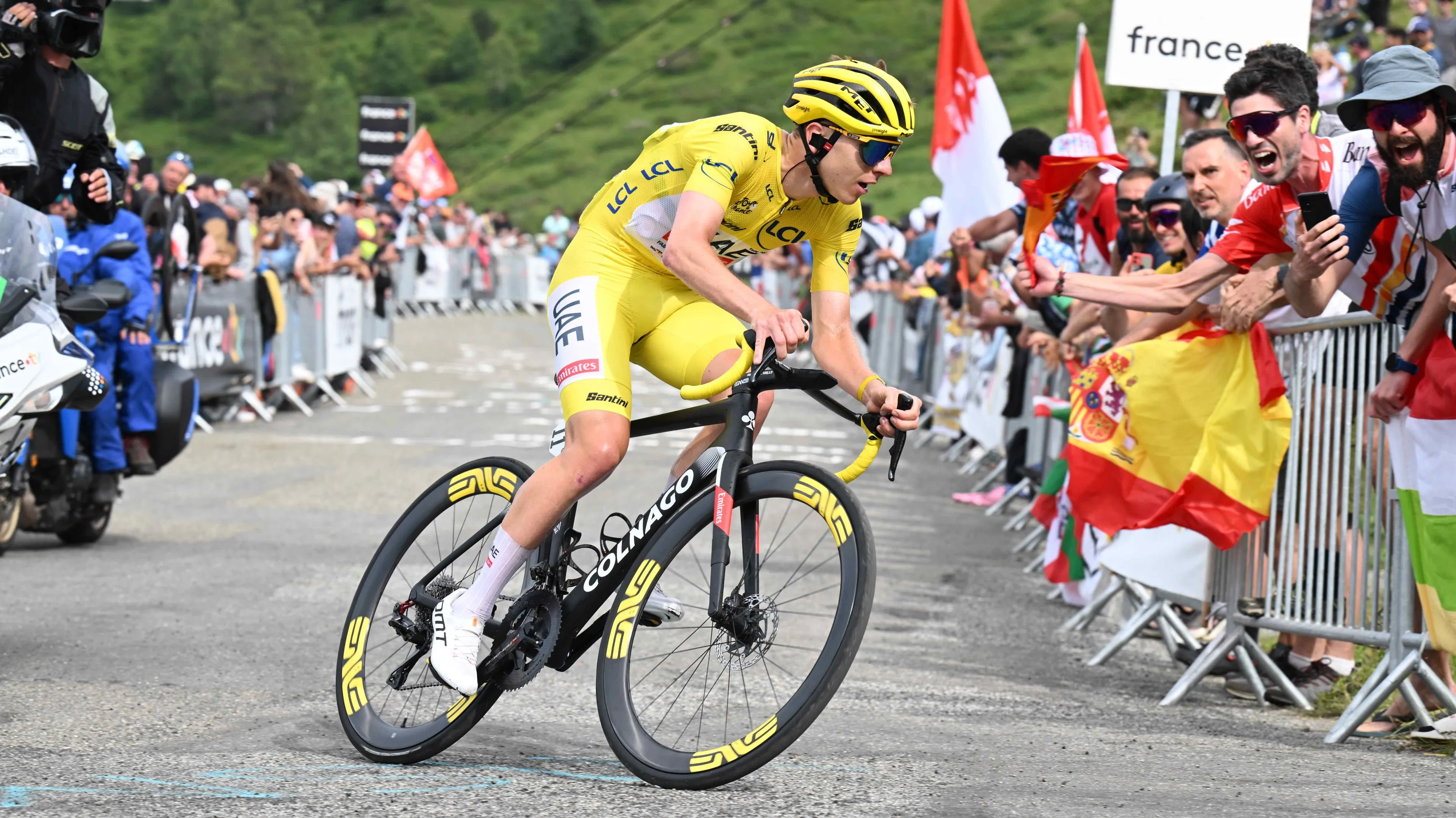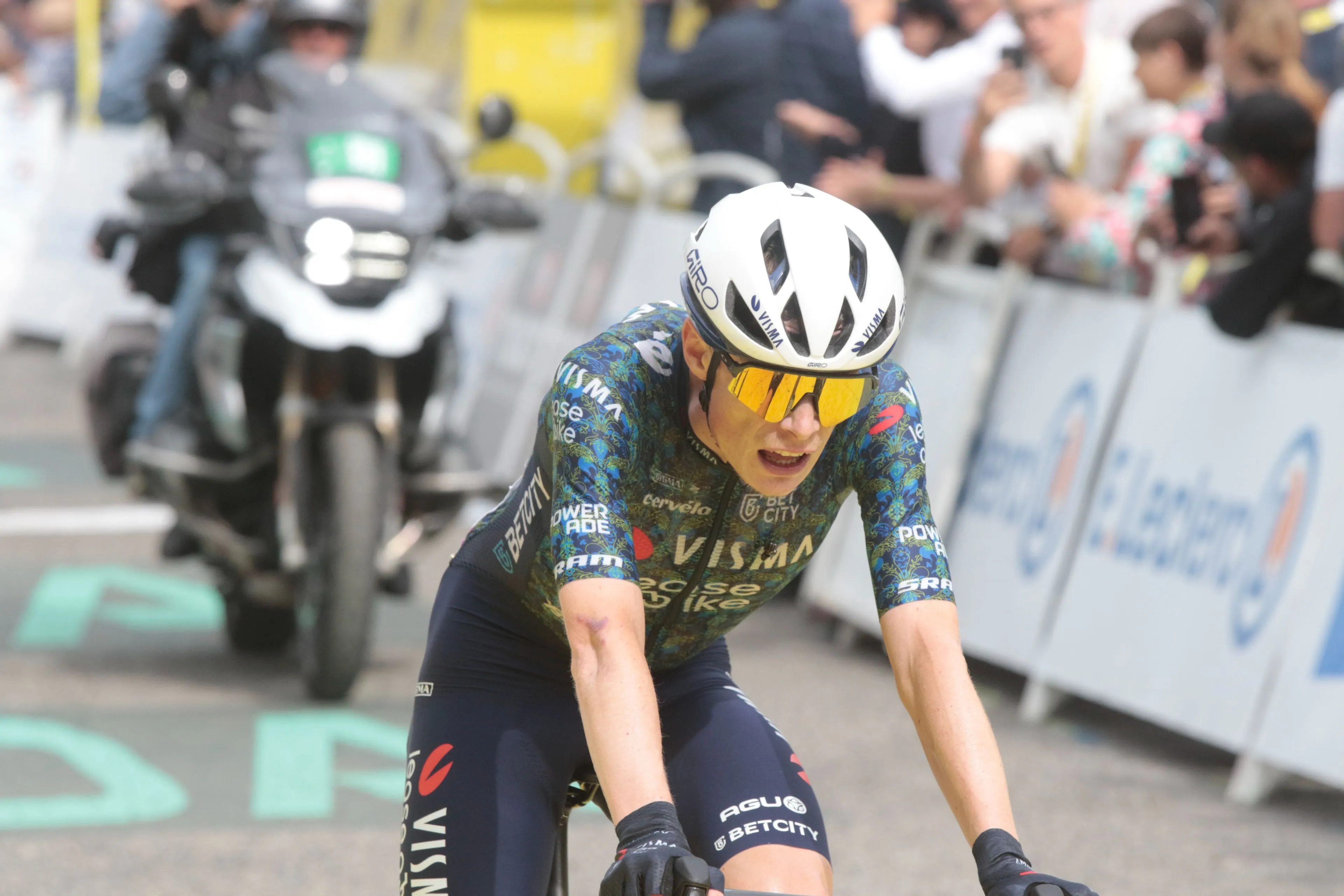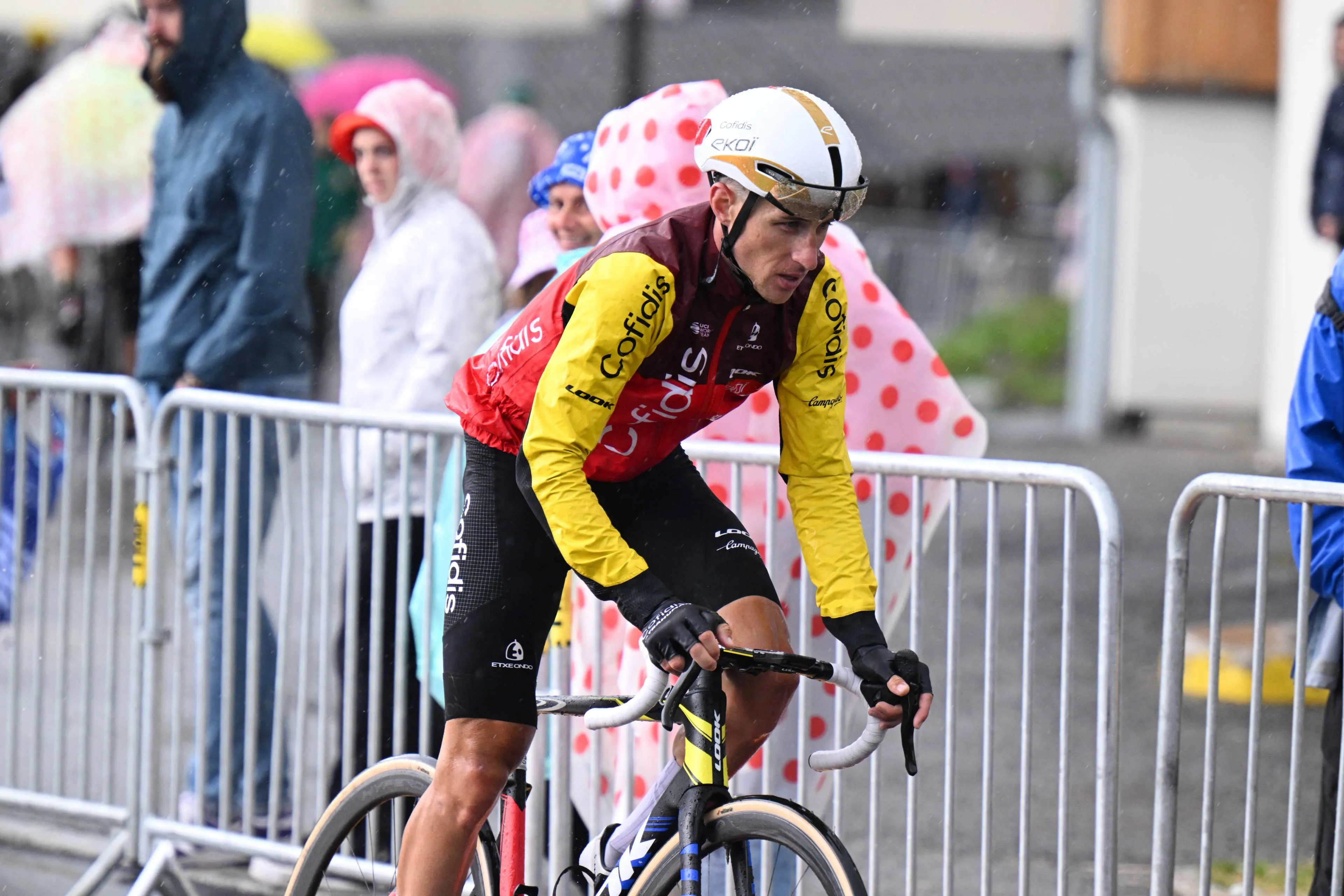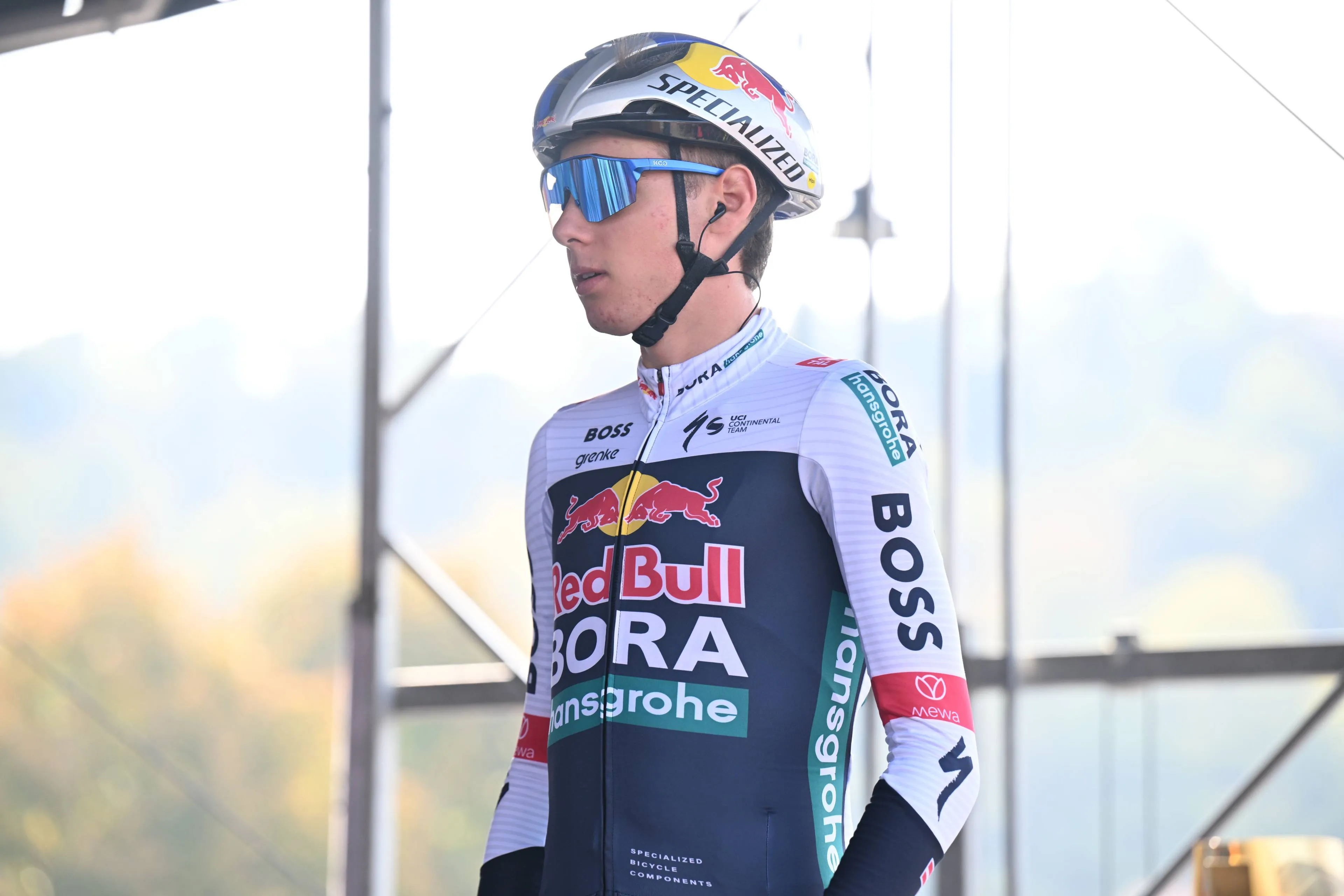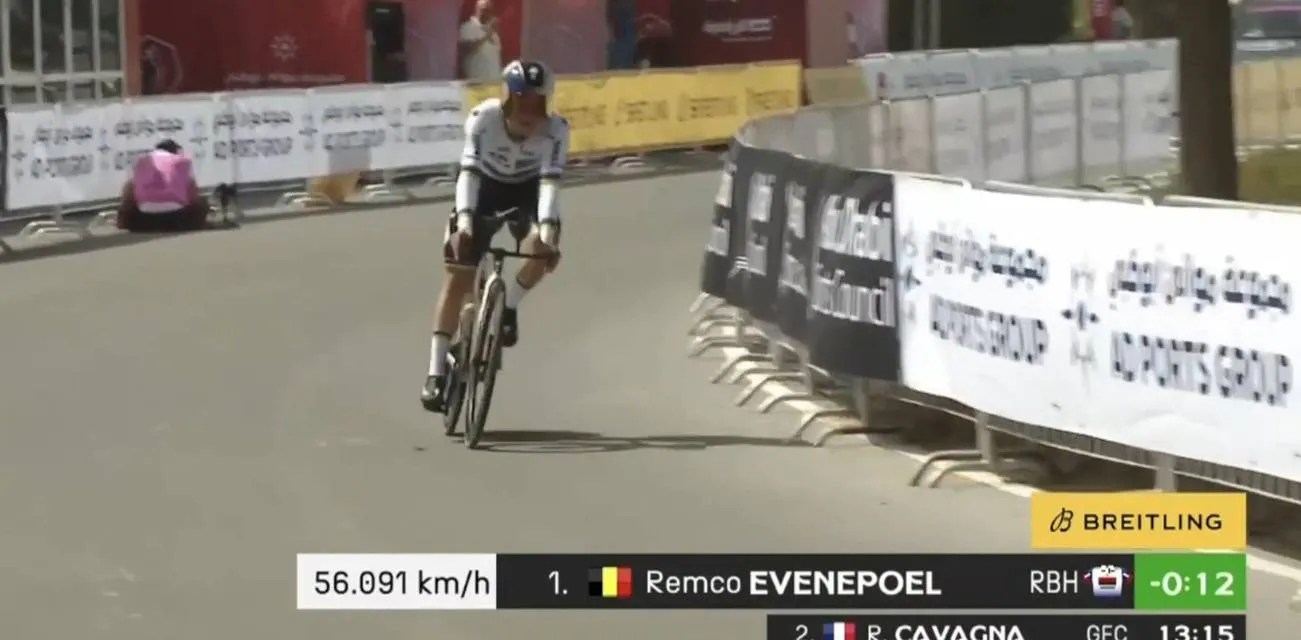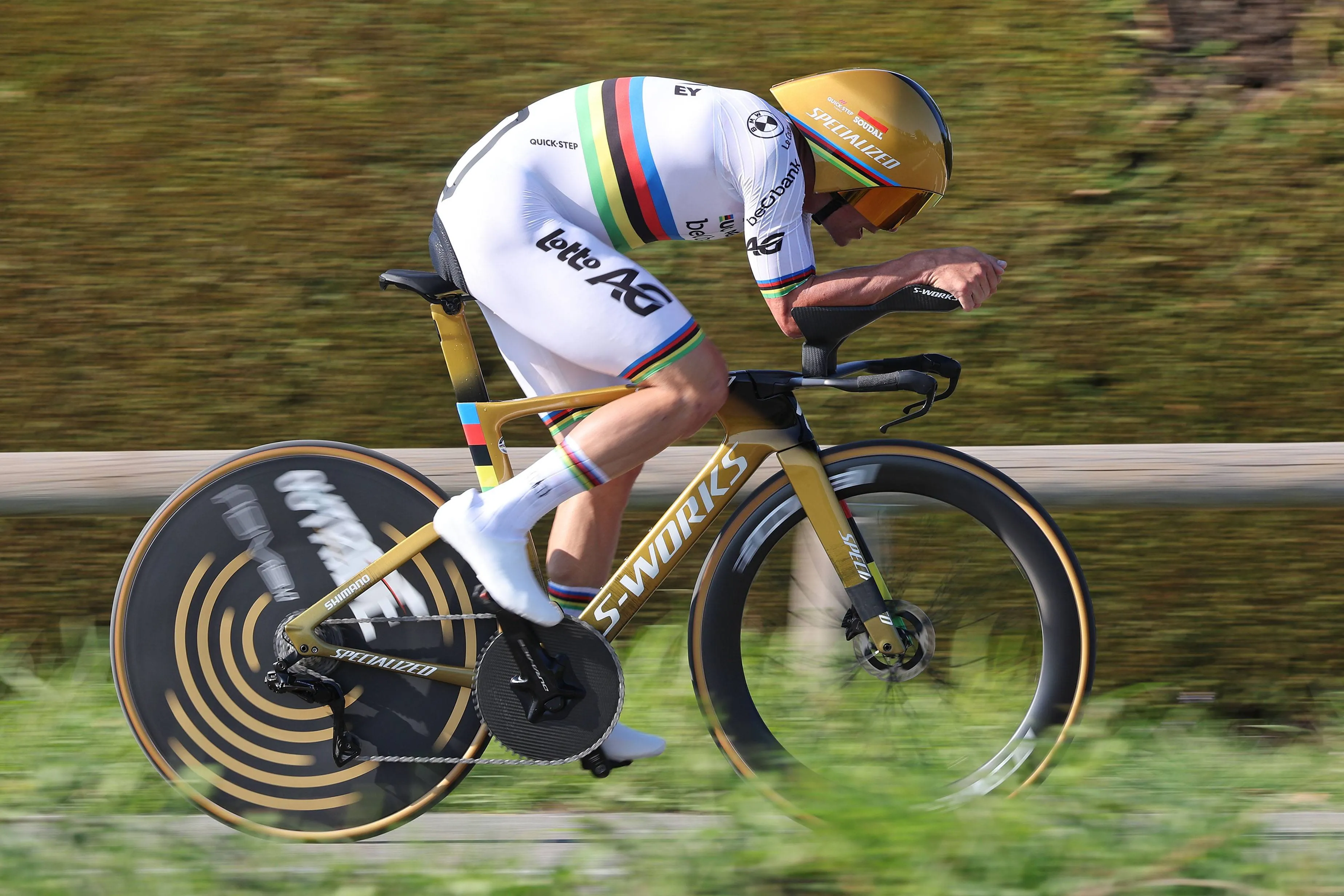"It is very accurate" - Jonas Vingegaard confirms that unbelievable W/Kg on Plateau de Beille are true
CyclingWednesday, 17 July 2024 at 10:51

Stage 15 of the Tour de France had almost 5000 meters of climbing and was raced at a very high pace from start to finish. Hence, after climbing Plateau de Beille in less than 40 minutes, a whole 3:44 minutes faster than Marco Pantani in 1998, a whole conversation began on the unreal watts that were pushed by Tadej Pogacar but also his rivals. Jonas Vingegaard confirms that the estimates are 'very accurate'.
As soon as the stage finished, several analysts stopped the timer and quickly confirmed the unreal pace that was ridden on the Pyrenean climb. Pogacar raced up the 16-kilometer climb in 39 minutes and 44 seconds; Jonas Vingegaard in 40 minutes and 52 seconds; Remco Evenepoel in 42 minutes and 35 seconds... And the previous record of Marco Pantani was of 43:28 - a similar time to that of fourth place Mikel Landa.
Behind were times of riders such as Lance Armstrong in 45:40 (2004), Jelle Vanendert who won stage in 2011 with 46:26 and the GC group including Chris Froome back in 2015 with 45:39 - six minutes slower than Sunday's time by Pogacar. It was estimated that Pogacar pushed 6.98W/Kg for the whole climb, unseen numbers in the world of cycling.
Read also
Pogacar's time up the climb itself was aided by the monstrous work of Matteo Jorgenson and Jonas Vingegaard. The latter also put in his career-best performance up the ascent, said to have averaged 6.85 W/Kg for over 40 minutes.
"...The others on the team said that someone has estimated how many watts per kilo we have stepped on. To put it bluntly, it is very accurate," Vingegaard said in words to TV2 Denmark. "Of course I don't know what they rode in the old days, but it's at least the best I've ever ridden".
There is no question on whether this ride is one for the history books, at least for the time being, it is possible that more will happen in the coming days. It is palpable the evolution in climbing performance in cycling, which does not stop growing due to the constant evolution in technology, nutrition and training methods ahead of what is the biggest race in the calendar.
Read also
claps 2visitors 2
Just in
Popular news
Latest comments
- Clickbait title, not reality-based. Yawn.itsent18-02-2026
- lame, but probably correctantipodeanpedalfan18-02-2026
- Van Gils rode like wanted to get crashed or way too over confident that he was going to overtake Jan before getting pinched. It was obvious were Jan was going/had to go and MVG had the whole road to give an inch so he would have a chance to overtake on the rightjad2918-02-2026
- Double book this showing with the Melania documentary and you might get 100 people to see it...total !frieders318-02-2026
- Simple solution...stay off the barriers since you might get closed out ! Christen's sprint was legal as he was trying to get into the slipstream of Pidcock.frieders318-02-2026
- I believe Remco now understands that he will have issues reaching the top step as long as Tadej is in the Tour, whiles he's a year junior to Tadej he has had his upper body rebuilt twice now from crashes over the last few years. I think he has a chance to win the Tour in a few more seasons, you can only prepare yourself as best you can and try. He said he needs to race some more one week stage races, he should, he can probably win them all. I also believe Remco should aim for another Vuelta if he comes out of the Tour in good form and maybe he should think about the Giro again for next season. This is potentially Tadej's fifth Tour win coming up this year, no one is going to derail that unless he falls off the bike or gets really sick.awp17-02-2026
- Not only will the great narcissist get his voice, but he'll benefit financially from this as well. Who says that cheating and lying your way to victory doesn't pay?
 santiagobenites17-02-2026
santiagobenites17-02-2026 - It'll make a good double feature with the Michael Jackson soft focus biopic.LumbarDeniro17-02-2026
- Yeah, whilst MVDP would never break a bone on the MTB... 😂Sexass17-02-2026
- I think he looses too much weight and that leads to his implosions, when he doesn't worry about it or can get it exactly were he wants, like 2024 tour, he is betterjad2917-02-2026
Loading
🇫🇷 #TDF2024 Rest day. Where pause is power . 💙 #PauseIsPower
42 Comments
